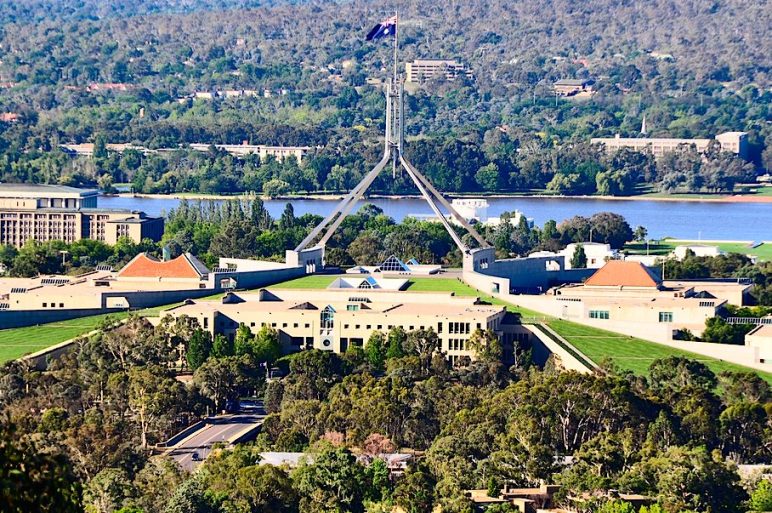Climate Tech Startup Good Heat Raises $2 Million to Transform Industrial Energy
Australian climate-tech startup Good Heat has raised $2 million in pre-seed funding to accelerate the shift toward renewable-powered industrial heating. The funding round, backed by several sustainability-focused venture firms, will enable the company to deploy its innovative “heat-as-a-service” model across major manufacturing sectors.
Founded in 2025 by Bauke van Gent, Tom Geiser, and Bruis van Vlijmen, Good Heat develops large-scale thermal energy storage systems, or “heat batteries,” that use renewable electricity to generate and store heat. This heat can then be supplied on demand to factories and industrial plants, replacing traditional gas-fired boilers that are costly and carbon-intensive.
Unlike conventional equipment sales, Good Heat’s approach removes upfront capital costs for clients. The company builds, owns, and operates the heat systems, selling clean heat through long-term contracts. This subscription-style model allows industries to decarbonize without taking on financial or technical risk, while benefiting from stable and predictable energy costs.

The new funding will support the construction of Good Heat’s first commercial project in Victoria, which is expected to deliver over $1.5 million in annual energy savings for a local manufacturer while cutting carbon emissions significantly. The capital will also help expand engineering capabilities and develop a growing pipeline of projects across Australia.
Industrial heating is responsible for a large share of global greenhouse gas emissions and has been one of the most challenging areas to decarbonize. By combining renewable energy with advanced thermal storage, Good Heat aims to make clean industrial heat both affordable and scalable.
As investor momentum builds around climate technology, Good Heat’s innovative model positions it at the forefront of the global transition toward electrified, zero-emission industry — a critical step in achieving net-zero goals.
OpenAI Wins Second Australian Government Contract After Being Sole Bidder
OpenAI has secured its second contract with the Australian government, marking another step in the company’s growing relationship with Canberra. The deal, awarded by the Commonwealth Grants Commission (CGC), was notable because OpenAI was the only company invited to bid, highlighting the federal government’s early confidence in the U.S. artificial intelligence leader.
The one-year agreement, reportedly worth around A$25,000, focuses on providing AI services and support to the CGC as it explores how generative AI can enhance data analysis and administrative efficiency. It follows an earlier contract OpenAI won this year with the Department of the Treasury, where its technology is being used to assist in research and drafting tasks.
While both deals are relatively small, they represent a strategic foothold for OpenAI in Australia’s public sector. By engaging directly with federal agencies, the company is positioning itself as a preferred partner for future, larger-scale AI initiatives across government departments.

The contracts come amid growing government interest in the safe adoption of generative AI. The Digital Transformation Agency recently updated its guidelines, allowing the use of public AI platforms—like ChatGPT—for “OFFICIAL” government information, provided appropriate safeguards are in place.
Critics, however, have raised concerns about the lack of open competition in the procurement process. Because the contracts were below the threshold requiring public tender, the CGC was able to award the project directly to OpenAI without inviting other vendors to apply.
Still, industry analysts say the move reflects Australia’s pragmatic approach to AI adoption, favouring proven international partners while building domestic expertise. With this second contract secured, OpenAI appears well placed to play a significant role in shaping the country’s emerging public-sector AI infrastructure.
ANZ Pulls Plug on Startup Investment in Consumer Data Platform
The Australia and New Zealand Banking Group (ANZ) has quietly wound down its backing of the data-insights startup DataCo Technologies, marking yet another shake-up in the bank’s innovation portfolio. DataCo, originally spun out of ANZ’s venture arm, was a platform designed to allow businesses to securely collaborate on customer and transactional data.
DataCo emerged from ANZ’s innovation studio and its venture capital group, initially presented as a promising tool for aggregating de-identified banking and transaction data to unlock sector insights. It had been pitched as a way for regulated institutions to share data safely and create products around spend trends, consumer behaviour and growth opportunities.
However, ANZ’s broader strategic shift appears to have caught up with the venture. The bank recently announced it was shuttering its venture capital arm and winding down the associated innovation funding model. In that context, DataCo has now been shelved — a move that underscores the bank’s pivot away from earlier experimentation and toward cost control and balance-sheet priorities.

For the startups and stakeholders involved, the shutdown highlights the risks of embedding innovations within corporate-venture units: the moment strategic priorities change or cost pressures mount, even promising internal ventures can be discontinued. While DataCo had show-case value and a public collaboration with the bank, it apparently did not make the cut in ANZ’s latest restructuring round.
Going forward, ANZ appears to be re-focusing its investments inward, scaling back its external-venture ambitions and reducing exposure to early-stage bets. For the fintech and insurtech ecosystem in Australia, the signalling is clear: bank-backed startup programs may no longer receive the same level of support or runway they once did.
Ex-Atlassians Score Quick Exit for Their AI Data-Security Startup
A Melbourne-based startup founded by former employees of Atlassian has been acquired after just two years in operation, marking a fast and notable exit in Australia’s AI and cybersecurity scene. The company, Redactive AI, was co-founded by ex-Atlassian engineers Andrew Pankevicius and Alexander Valente, together with AI engineer Lucas Sargent.
Redactive AI developed an enterprise-grade platform to help organisations manage AI-enabled data security and governance—an area increasingly critical as companies deploy machine-learning systems and grapple with compliance in regulated sectors. Within its short lifespan, the startup had landed prominent clients in the super-funds and financial services space.
The acquirer, RecordPoint — a Pan-Pacific data-management and records-governance firm that counts major banks and regulators among its clients — said that the deal will enhance its AI-driven governance and security capabilities. According to RecordPoint’s CEO, Redactive’s fast-built platform and focus on data control and AI risk made it an ideal fit for scaling into enterprise and regulated markets.

The terms of the acquisition were not publicly disclosed, but industry observers say it illustrates how rapidly the AI-security sector is evolving, and how talented teams in Melbourne and across Australia are being picked up for their specialised capabilities. Redactive’s founders described the outcome as a validation of their strategy: they had set out to address a “missing skillset” in enterprise engineering-teams for AI instrumentation, security and governance—and the acquisition signals that the market is recognising that gap.
For Australia’s startup ecosystem, the deal is one of the earlier exits of an AI-powered, enterprise-security startup. It may inspire more founders working in regulation, data security and AI to think about global scale and acquisition as part of their roadmap from inception.
Cheque-in: 6 Startups Banked $13.4 Million in Funding This Week
Six Australian startups collectively raised $13.4 million this week, marking another strong showing for early-stage innovation across sectors like climate tech, AI, and health. While funding volumes remain below record highs, investors are clearly backing mission-driven founders with scalable technology and measurable impact.
Leading the pack was GXE, which secured $3.3 million in a Series A round to expand its platform for private asset managers and family offices. The company plans to accelerate growth across Asia-Pacific as it scales its investment-management technology.
Melbourne-based Conry Tech, a climate-tech startup focused on reinventing air-conditioning systems for energy efficiency, raised $3 million in fresh capital. The funds will help advance product testing and prepare for international market entry.
In the software space, Optimaze closed a $3 million pre-seed round to tackle “cloud waste” using AI-driven optimization tools. Its technology helps enterprises identify and reduce unnecessary cloud-infrastructure costs, a fast-growing concern as digital operations scale globally.

Sydney’s Good Heat added $2 million to accelerate its rollout of renewable-powered thermal storage systems designed to replace gas-fired industrial heating. The company’s “heat-as-a-service” model has quickly attracted attention from manufacturing clients seeking to decarbonize operations.
Health-tech startup PredicTX Health, spun out of the University of Melbourne, raised $1.6 million to advance its AI platform that personalizes cancer treatment dosages. The funding will support clinical validation and regulatory approvals.
Finally, impact-investment platform Inaam secured $500,000 in pre-seed funding to help younger investors access sustainable investment opportunities through a simple, app-based model.
This week’s funding activity demonstrates that even in a cautious investment climate, Australian startups with strong technology, sustainability goals, and clear market applications continue to attract serious attention—and the capital to match.











